The Dominican Republic, which shares the island of Hispaniola with Haiti, said on Monday that its defense minister was touring the construction of a border fence, while Dominican President Luis Abinader ruled out opening refugee camps for Haitians.
Separately, neighboring Bahamas said it had recalled embassy staff to New Providence, leaving behind only the chargé d'affaires and two security attachés. Meanwhile, Mexico advised its citizens to limit travel and stock up on water, fuel and other essentials.
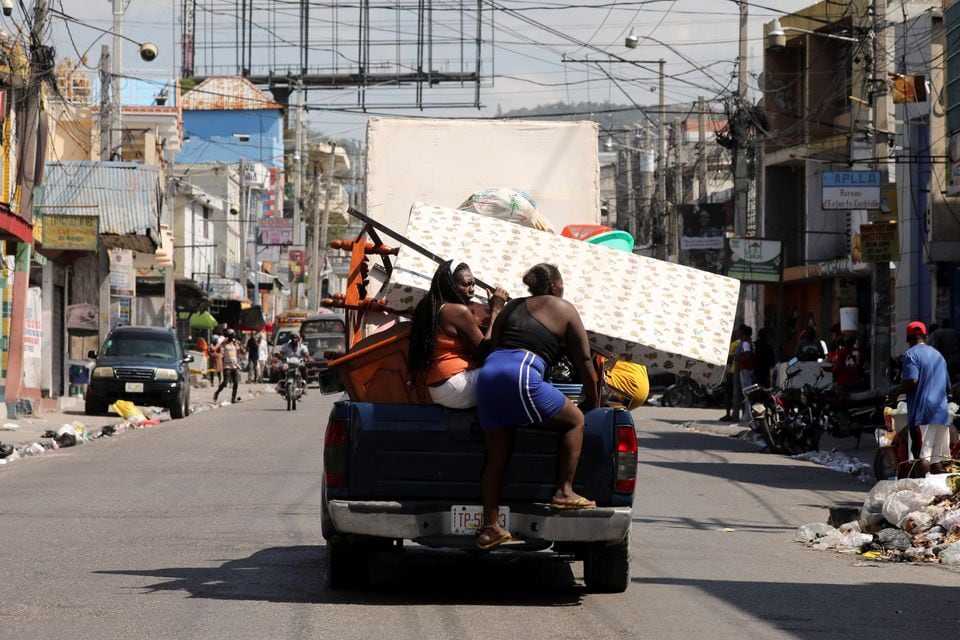
People carry their belongings and flee their homes as Haitian authorities declare a state of emergency due to violence in Port-au-Prince. Photo: Reuters
The United States urged its citizens to leave Haiti “as soon as possible.” Brazil called on the international community to implement a United Nations resolution to send a multinational force to Haiti. In a statement, the Brazilian government noted that it led a United Nations peace mission to Haiti from 2004 to 2017.
Gangs have warned residents around the capital Port-au-Prince to keep children home, despite Haitian authorities stipulating that schools will remain open. Authorities at Port Au Prince International Airport said there was heavy gunfire near the airport even during the day.
Earlier on Sunday, Haitian authorities declared a 72-hour state of emergency and imposed a nightly curfew after armed gangs freed thousands of prisoners, and a gang leader called for the overthrow of Prime Minister Ariel Henry.
Violence erupted in Henry's absence. The whereabouts of Prime Minister Henry remain unknown after a trip to Kenya to sign a deal for the African nation to lead an international force against gangs in Haiti.
An estimated 15,000 people fled the violence in Port-au-Prince in just three days last week, according to the International Organization for Migration. Many of them came from makeshift camps in schools, hospitals and squares where they had been evacuated.
Earlier this year, the United Nations estimated that some 300,000 Haitians had been forced to flee their homes, fleeing indiscriminate killings, sexual violence, kidnappings and looting as heavily armed gangs fought for territory and clashed with authorities.
Ngoc Anh (according to Reuters)
Source


![[Photo] General Secretary To Lam begins official visit to Russia and attends the 80th Anniversary of Victory over Fascism](https://vphoto.vietnam.vn/thumb/1200x675/vietnam/resource/IMAGE/2025/5/8/5d2566d7f67d4a1e9b88bc677831ec9d)
![[Photo] General Secretary concludes visit to Azerbaijan, departs for visit to Russian Federation](https://vphoto.vietnam.vn/thumb/1200x675/vietnam/resource/IMAGE/2025/5/8/7a135ad280314b66917ad278ce0e26fa)

![[Photo] President Luong Cuong presents the decision to appoint Deputy Head of the Office of the President](https://vphoto.vietnam.vn/thumb/1200x675/vietnam/resource/IMAGE/2025/5/8/501f8ee192f3476ab9f7579c57b423ad)
![[Photo] National Assembly Chairman Tran Thanh Man chairs the meeting of the Subcommittee on Documents of the First National Assembly Party Congress](https://vphoto.vietnam.vn/thumb/1200x675/vietnam/resource/IMAGE/2025/5/8/72b19a73d94a4affab411fd8c87f4f8d)
![[Photo] Prime Minister Pham Minh Chinh meets with the Policy Advisory Council on Private Economic Development](https://vphoto.vietnam.vn/thumb/1200x675/vietnam/resource/IMAGE/2025/5/8/387da60b85cc489ab2aed8442fc3b14a)






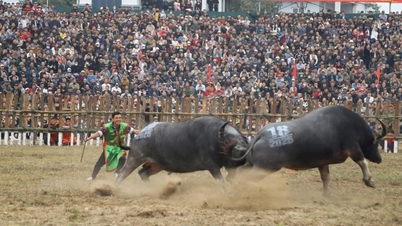



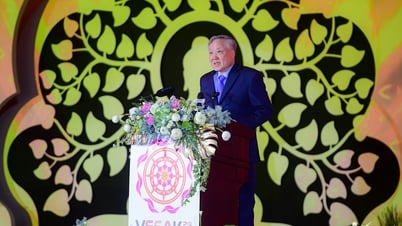

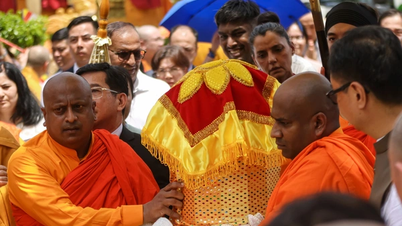
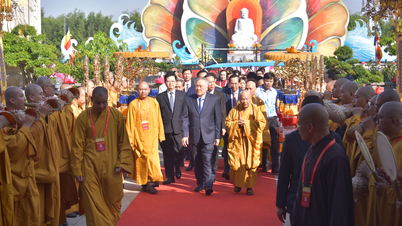

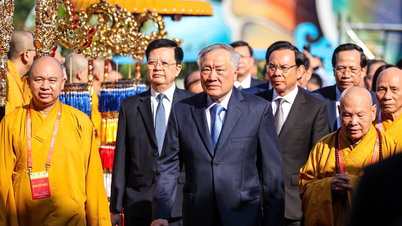








































![[Photo] Prime Minister Pham Minh Chinh talks on the phone with Singaporean Prime Minister Lawrence Wong](https://vphoto.vietnam.vn/thumb/402x226/vietnam/resource/IMAGE/2025/5/8/e2eab082d9bc4fc4a360b28fa0ab94de)


































Comment (0)